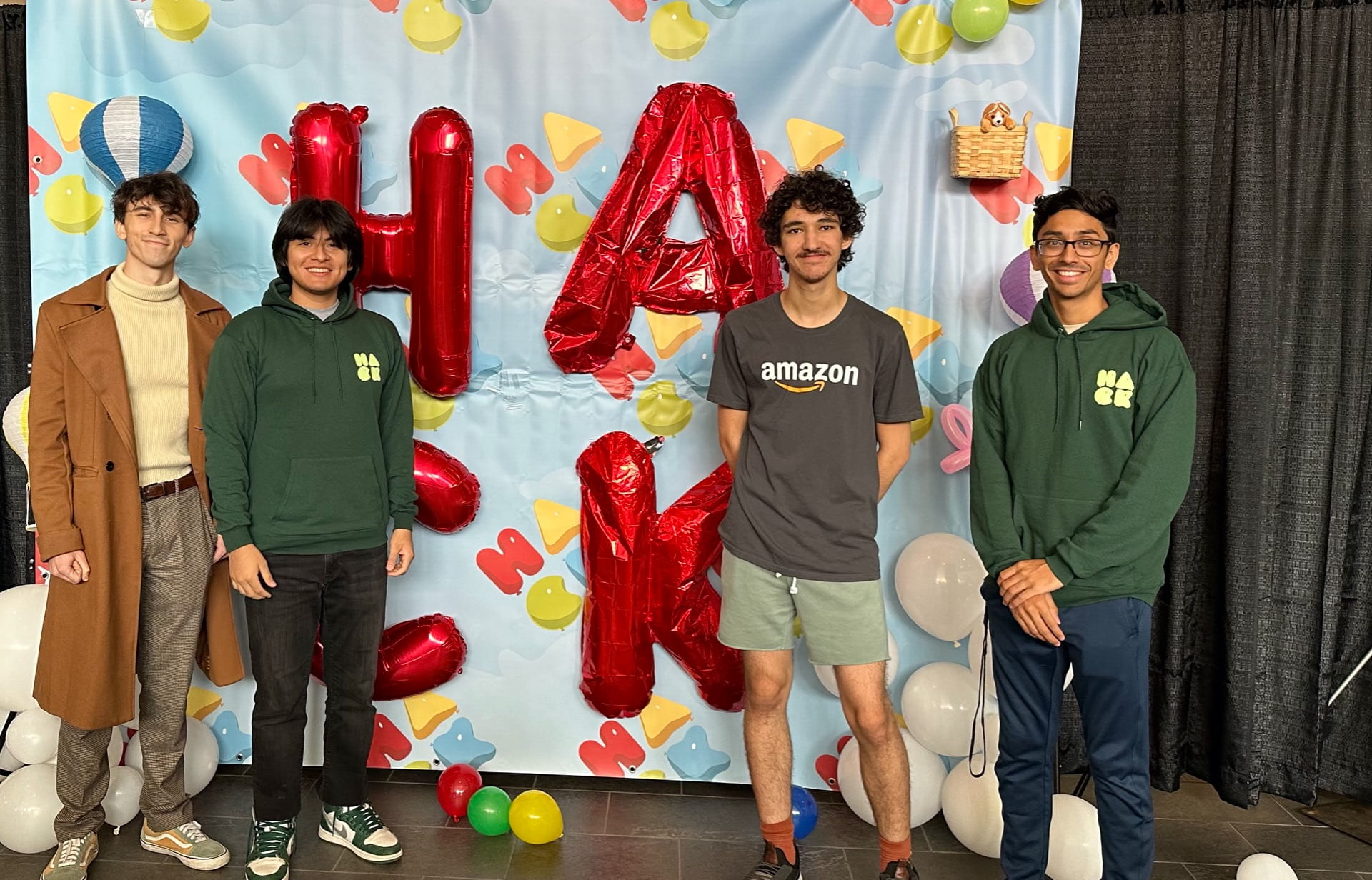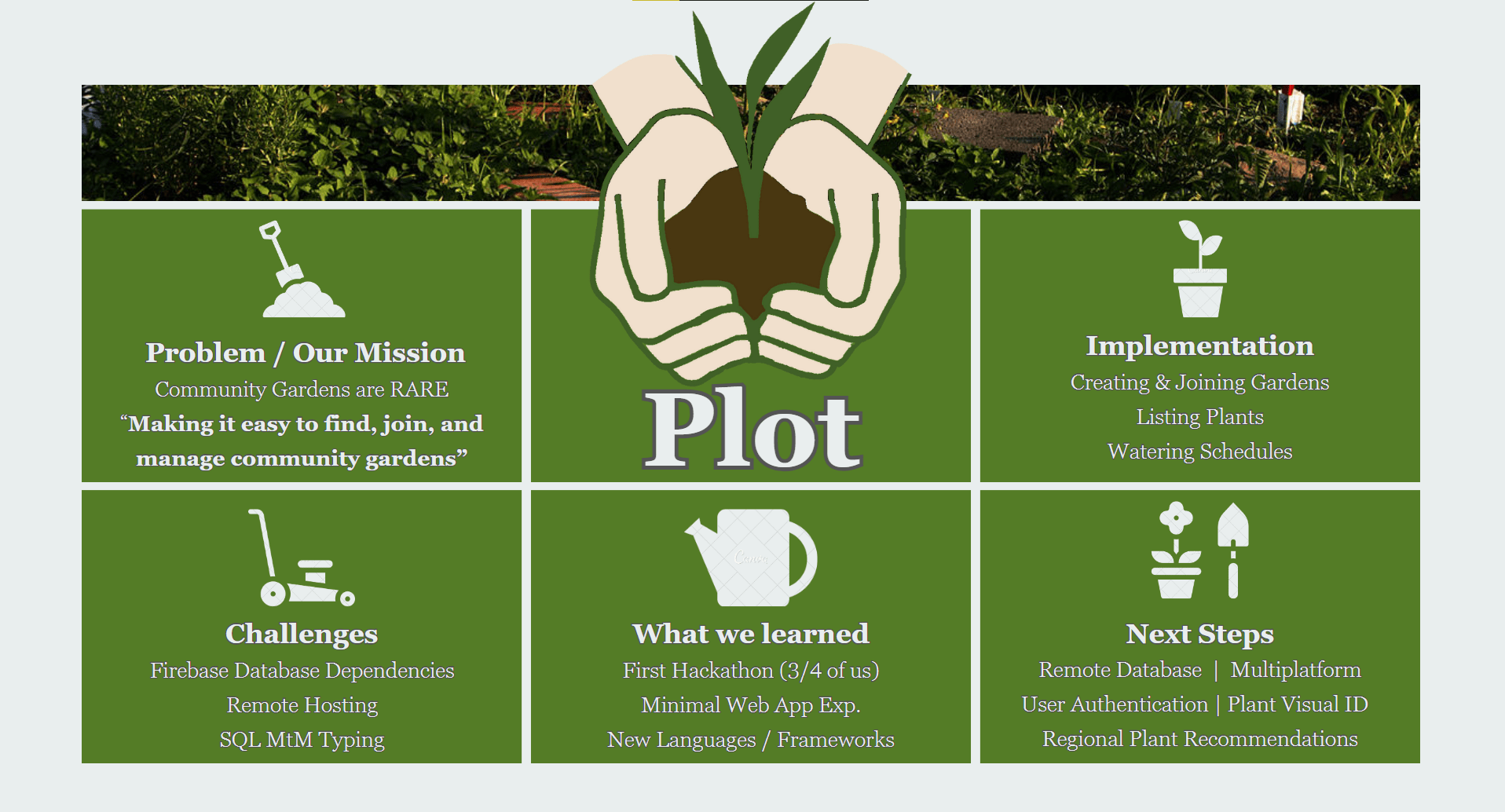Mitchell Bylak is an Honors College Fellow from Fayetteville, AR, studying computer science. This fall, he participated in the HackMIT hackathon, one of the world’s largest undergraduate hackathons hosted at the Massachusetts Institue of Technology. Over the weekend, Mitchell got a chance to tour the historic campus and partnered with fellow students to develop an app geared to grow community sustainability.
The application process had been rigorous: I competed against several thousand other students for a spot at the most prestigious Hackathon in the nation. Beyond that, MIT is known for being one of the greatest STEM colleges in the world, and so I was overjoyed to receive an invitation to fly out to Cambridge and participate. The competition had no extra fees to attend, but we’re all familiar with the price of plane tickets in the United States. With this incredible opportunity I was granted, I wanted to arrive with as much time as possible to see MIT and the surrounding areas of Boston before the competition began. So there I was at 4:30 in the morning, throwing my luggage in my friend’s car for the trip to the airport and a flight out as soon as XNA was open.
Being up so early had its perks: I fell asleep nearly the entire flight and felt energized and excited to get moving once I arrived. I had been talking with other participants in the group chat provided by MIT for students to make teams and had already formed a team with three other students. I was waiting for one of them to arrive at the airport an hour after I landed. Once we met, we headed straight for the campus to sign in to tour the historic buildings. Nearly every lab had glass walls, so it was like something out of a sci-fi movie walking past room after room of cutting-edge robotics, biological wonders, and more.
One of the more captivating lectures that night was from the IBM Watson team, who explained the fascinating difference between generative and diffusive AIs. To not write an entire paper on it: a generative AI comes up with everything as it goes along (like ChatGPT) and the AI builds on an idea from beginning to end. Diffusive AI, on the other hand, takes a vague outline of its input and then refines it into a much more cohesive final product.
On the morning of the competition, we gathered in the ice-skating rink (without the ice, of course), listened to a kickoff speech, and then began programming an application with the given theme of sustainability. Our team chose to try solving the challenge of hidden and exclusive community gardens curbing local residents’ access to gardening and homegrown food. We developed an app called “Plot” to provide an accessible interface for users to locate or designate their own community gardens. To accomplish this, we overlaid Google Maps with user-defined areas to represent various community gardens, offering straightforward drag-and-drop functionality for users to establish their gardens or join existing ones. The app allowed users to describe the types of plants in their gardens with distinct watering schedules. Plot could even send email reminders when it’s watering time.
After getting almost no sleep, the day of presentations was upon us. I had to convince my teammates to step away from development for a moment so we could focus on making our presentation. With less than a minute remaining, we finalized and submitted our application code, presentation, and digital poster. Unlike the University of Arkansas’s style of Hackathon presentations, HackMIT only had us stay at our crowded tables in the ice rink as four rounds of judges came by for us to give the same brief presentation with a few minutes at the end to answer any additional questions they might have. Unfortunately, the competition was having significant organizational issues, so the judging didn’t actually start when it was scheduled. As a result, judges showed up late each time, and we were often rushed to finish talking and cut off midway through questions.
After waiting an additional hour past when the second round of competition was said to begin, they announced that they would instead be skipping the second round and cut down to the seven finalist teams. Although we didn’t make it that far, I can say that we placed 8th, and no one can prove otherwise.


